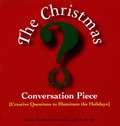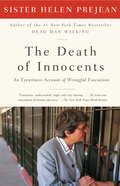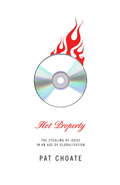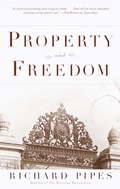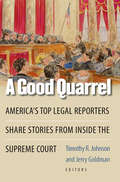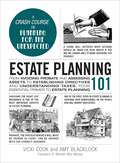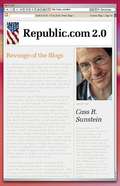- Table View
- List View
Christmas Conversation Piece
by Bret Nicholaus Paul LowrieWhat one Christmas tradition would you never want to give up? If you could spend Christmas anywhere in the world, where would you most want to be? If you could have visited the Christ child just as the Three Kings did, what would you have brought as a gift? You've been chosen to host a sensational Christmas celebration on TV: What three guests would you choose to make it the best Christmas special ever? The Christmas Conversation Pieceoffers these and many other questions to pose and ponder during a season of both deep reflection and unabashed merriment. This charming volume--the perfect stocking stuffer--will provide you, your family, and your friends with twelve days of surprising and amusing Yuletide questions. Who would you most like to meet under the mistletoe? Your answer just may change by Christmas Eve!
The Death of Innocents
by Helen PrejeanFrom the author of the national bestseller Dead Man Walking comes a brave and fiercely argued new book that tests the moral edge of the debate on capital punishment: What if we're executing innocent men? Two cases in point are Dobie Gillis Williams, an indigent black man with an IQ of 65, and Joseph Roger O'Dell. Both were convicted of murder on flimsy evidence (O'Dell's principal accuser was a jailhouse informant who later recanted his testimony). Both were executed in spite of numerous appeals. Sister Helen Prejean watched both of them die.As she recounts these men's cases and takes us through their terrible last moments, Prejean brilliantly dismantles the legal and religious arguments that have been used to justify the death penalty. Riveting, moving, and ultimately damning, The Death of Innocents is a book we dare not ignore.From the Trade Paperback edition.ng on the forensic evidence, which he claimed would exonerate him, but the courts refused. After his execution on July 23, 1997, the state destroyed the evidence. As a result, its conviction of O'Dell could never be scrutinized. "The reader of this book will be the first 'jury' with access to all the evidence the trial juries never saw," says Prejean, who accompanied both men to their executions. By using the withheld evidence to reconstruct the crimes for which these two men were convicted, Prejean shows how race, prosecutorial ambition, poverty, election cycles, and publicity play far too great a role in determining who dies and who lives.Prejean traces the historical underpinnings of executions in this country, demonstrating that it is no accident that over 80 percent of executions in the past twenty-five years have been carried out in the former slave states. She also raises profound constitutional questions about an appeals system that decides most death cases on procedural grounds without ever examining their merits.To date, 113 wrongfully convicted persons have been freed from death row. If constitutional protections-due process, assistance of counsel, and equal justice under law-are truly being respected, how is it possible that these people were convicted in the first place? And how can we accept a system so rife with error?Sister Helen Prejean takes us with her on her spiritual journey as she accompanies two possibly innocent human beings to their deaths at the hands of the state. Prejean implores us to reflect on what is perhaps the core moral issue of the death penalty debate: Honorable people disagree about the justice of executing the guilty, but can anyone argue about the injustice of executing the innocent?From the Hardcover edition.
Hot Property: The Stealing of Ideas in an Age of Globalization
by Pat ChoateAuthor of several books on US society and economics, and running mate of Ross Perot in the 1996 presidential election, Choate examines the roots of conflicts over intellectual property and how the establishment of patent and copyright protections helped propel the US economy. He also traces the emergence of Germany, Japan, and China as rivals to the US through copying, counterfeiting, and underpricing American products and media. Annotation ©2004 Book News, Inc. , Portland, OR (booknews. com)
Property and Freedom
by Richard PipesProperty, asserts Richard Pipes, is an indispensable ingredient not only of economic progress but also of liberty and the rule of law. In his new book, the Harvard scholar demonstrates how, throughout history, private ownership has served as a barrier to the power of the state, enabling the Western world to evolve enduring democratic institutions. He traces the development of private property, beginning with ancient Greece and Rome, where property rights in the modern sense first made their appearance. He explains how notions of ownership matured in late medieval times with the great expansion of commerce and the growth of cities. He shows how England, as the first country to treat land as a commodity and to develop a robust defense of property rights, also became the first to institute a parliamentary government capable of restraining the powers of royalty. In pre-nineteenth-century Russia, on the other hand, the absence of private land ownership deprived its citizens of the leverage to limit the authority of their tsars. Pipes describes the attitudes toward property of twentieth-century totalitarian states and points out that in the United States the protection of private property, rooted in the principles of the Founding Fathers, has been a major contributor to the commonweal. However, he warns that contemporary trends in the treatment of property--in a century that, he suggests, has been unfavorable to the institution--threaten to undermine the rights of citizens. And he makes clear why he believes that excessive interference by government, even when intended to promote the "common good," could lead to a diminution of freedom.
A Good Quarrel: America's Top Legal Reporters Share Stories from Inside the Supreme Court
by Timothy R. Johnson Jerry GoldmanWhile reading what top legal reporters say about some of the most important U. S. Supreme Court oral arguments in recent history, go to www. goodquarrel. com to listen to audio and hear for yourself the very style and delivery of the oral arguments that have shaped the history of our nation's highest law. See Preface for full instructions. Contributors Charles Bierbauer, CNN Lyle Denniston, scotusblog. com Fred Graham, Court TV Brent Kendall,Los Angeles Daily Journal Steve Lash,Houston Chronicle Dahlia Lithwick, Slate. com Tony Mauro, American Lawyer Media Tim O'Brien, ABC News David Savage,Los Angeles Times Greg Stohr, Bloomberg News Nina Totenberg, NPRTimothy R. Johnson teaches in the Department of Political Science and the Law School at the University of Minnesota. Jerry Goldman teaches political science at Northwestern University and directs the OYEZ Project, a multimedia archive devoted to the Supreme Court, at www. oyez. org . Cover sketch by Dana Verkouteren"Supreme Court oral arguments are good government in action. A Good Quarrelbrilliantly showcases this important aspect of the Court's work. " ---Paul Clement, Partner, King & Spalding, and former United States Solicitor General"Few legal experiences are as exhilarating as a Supreme Court oral argument---a unique art form that this superb collection brings vividly to life. " ---Kathleen Sullivan, Partner, Quinn Emanuel Urquhart Oliver and Hedges, and former Dean, Stanford Law School"[A Good Quarrel] shines a brilliant spotlight on the pivotal moment of advocacy when the Supreme Court confronts the nation's most profound legal questions. " ---Thomas C. Goldstein, Partner, Akin Gump, and Lecturer, Supreme Court Litigation, Harvard Law School and Stanford Law School"A brilliant way to understand America's most important mysterious institution. " ---Lawrence Lessig, Stanford Law School
Estate Planning 101: From Avoiding Probate and Assessing Assets to Establishing Directives and Understanding Taxes, Your Essential Primer to Estate Planning (Adams 101)
by Vicki Cook Amy BlacklockDiscover the ins and outs of planning your own or your loved one&’s last wishes with this easy-to-understand guide to estate planning.No one likes to talk about death, but being prepared for any unexpected tragedy can help your loved ones navigate your loss more easily in the long run. From creating your advanced medical directives to designating your beneficiaries, estate planning can ensure that your wishes are carried out when you are no longer around. With Estate Planning 101, you can get your affairs in order before any unfortunate incident occurs. This easy-to-understand guide comes with detailed information on what needs to be done to protect your estate. With information on creating a living will, minimizing estate taxes, choosing an executor, and more, you will be prepared for the future, no matter what it brings. Estate Planning 101 offers you step-by-step instructions and checklists to keep you organized for whatever life throws your way.
Republic.com 2.0
by Cass R. SunsteinWhat happens to democracy and free speech if people use the Internet to listen and speak only to the like-minded? What is the benefit of the Internet's unlimited choices if citizens narrowly filter the information they receive? Cass Sunstein first asked these questions in 2001'sRepublic. com. Now, inRepublic. com 2. 0, Sunstein thoroughly rethinks the critical relationship between democracy and the Internet in a world where partisan Weblogs have emerged as a significant political force. Republic. com 2. 0highlights new research on how people are using the Internet, especially the blogosphere. Sunstein warns against "information cocoons" and "echo chambers," wherein people avoid the news and opinions that they don't want to hear. He also demonstrates the need to regulate the innumerable choices made possible by technology. His proposed remedies and reforms emphasize what consumers and producers can do to help avoid the perils, and realize the promise, of the Internet.
